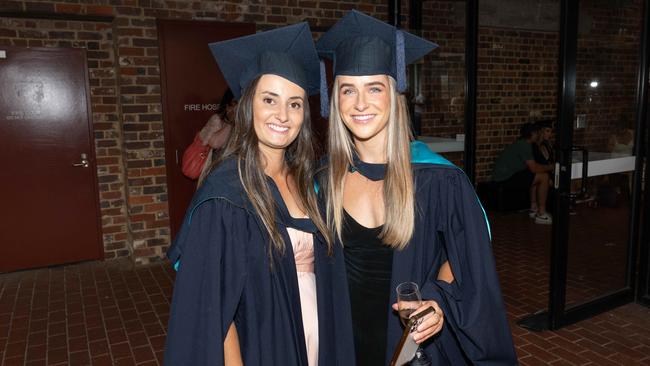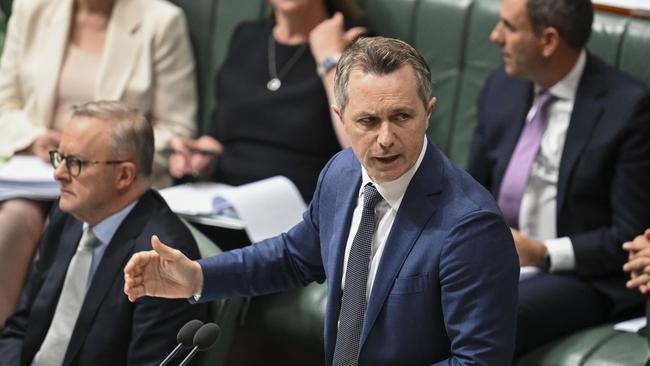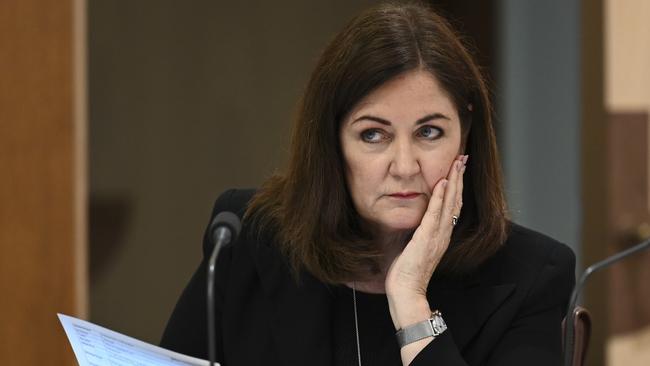Labor aims to reduce TAFE and university competition
Training Minister Brendan O’Connor says a sweeping review of tertiary education will help end competition, amid union concerns over trade apprentice numbers.

Skills and Training Minister Brendan O’Connor says the sweeping Universities Accord will help “bring universities and vocational education and training together”, amid union concerns more must be done urgently to boost apprentice numbers.
Mr O’Connor will tell the Universities Australia summit in Canberra on Tuesday the reform blueprint – the biggest review of tertiary education in Australia in 15 years – is an opportunity for the VET sector to allow workers to better complement their education with necessary training qualifications.
“A registered nurse who needs a bachelor degree can do their first 18 months through a VET provider, or a TAFE-trained sparky will have better opportunities to skill up into an area like electrical engineering,” he said in a draft version of his speech obtained by The Australian. “In the labour market of the very near future, people who don’t attain a tertiary qualification, risk being left behind.

“Both VET and higher education have a critical role to play in delivering these skills. And an increasingly collaborative role … High-skilled, non-routine work, both manual and cognitive, is growing, while repetitive routine work, both manual and cognitive, is declining.”
Mary O’Kane, chair of the Universities Accord Review panel, told The Australian she expected to see a lot more people “swinging between university and TAFE” and said this was about encouraging aspiration.
“You might start as a care assistant of some kind and end up being a neurosurgeon,” she said.
Electrical Trades Union secretary Michael Wright welcomed the Universities Accord, but said any moves making it financially viable for teachers and nurses to undertake their practical courses – by covering accommodation costs or simply paying them a wage – needed to be matched for trade apprentices, who, he argued, were not being compensated enough while in training.

“The accord seems very good,” Mr Wright said. “But we need to make sure the government keeps the priority not just on higher education but VET. It’s VET that’s going to build the energy transition. It’s VET that’s in crisis.”
Mr Wright said the main reason apprentices dropped out was cost-of-living pressures. In September, the National Centre for Vocational Education Research found individual completion rates for apprentices and trainees commencing in 2018 – the latest year for which final rates were available – were 55.8 per cent for all occupations.
In parliament on Monday, Education Minister Jason Clare said the new Universities Accord would also require a “better and fairer education system across the board”.
Some higher education experts have voiced concerns about the proposal to double the number of university places by 2050, warning it could force students with poor high school grades into university degrees that would not best serve their interests.

“If we are going to succeed here, we can’t just rely on reforms at the university gate,” Mr Clare said. “Because the same kids who aren’t getting a crack at university at the moment are the same kids who aren’t finishing high school, who are falling behind in primary school at the moment, who aren’t getting an opportunity to go to early education … So it is all connected. That’s why we need to build a better and a fairer education system across the board.”
Opposition education spokeswoman Sarah Henderson told The Australian the decline in school student performance was “the greatest barrier to a university education”.
“Nothing is more important than fixing our schools,” she said. “Mandating evidence-based teaching methods, including explicit instruction, is critical to raising school standards. Increasing tertiary attainment levels must start with improving primary and secondary education outcomes.”






To join the conversation, please log in. Don't have an account? Register
Join the conversation, you are commenting as Logout